How slots odds work
Need a better understanding of how mobile slots odds work and if you can do anything to affect them?
We abstractly know how slot machines work. You insert money, the reels spin, and a certain combination of symbols come up. If they match, you win money – and the rarer the symbols, the more money you’re likely to win.
But actually understanding what goes on behind the scenes is a different story.
Explaining house edge
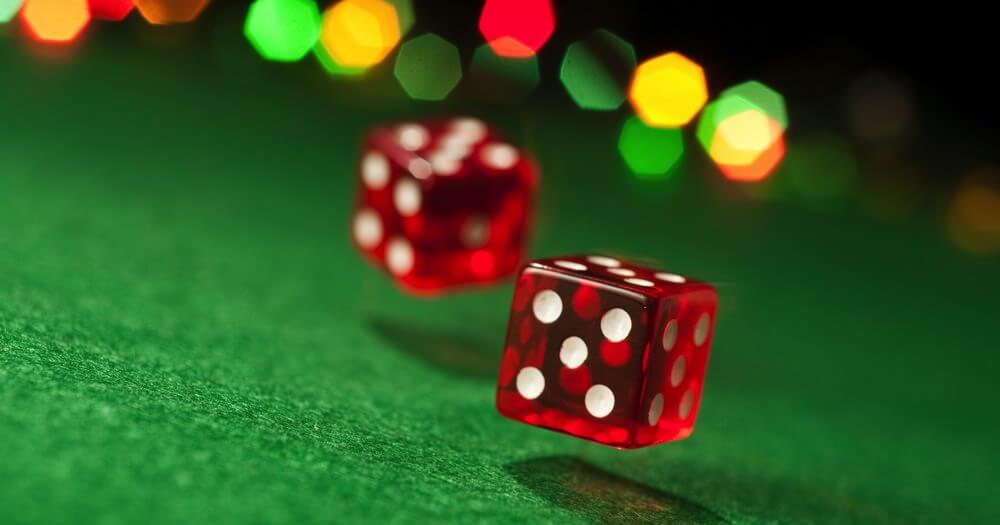
First things first: slots odds aren’t exactly the odds you’re playing with. If the jackpot is £1 million on a £1 spin, you might think there’s a one-in-a-million shot of winning.
The reality is it depends on what the return to player (RTP) is. If the machine has an RTP of 96 percent, then there’s a 4 percent leeway built into your odds – and it’s actually more like 1 in 1,040,000.
All casino games do this – they pay less than the true odds of winning bets.
European roulette, with a single 0 slot, has a 36-1 chance of coming up with any specific number you bet on. Put it all on lucky 7 though – and win – and you’ll only get a payout of 35-1.
It’s even worse with double-0 American roulette, as you’re still paid out at 35-1 even though there’s two “house wins” spaces (0 and 00).
This gives European roulette a house edge of 2.7 percent, while American roulette has a house edge of nearly double at 5.26.
So how do slot machines compare to roulette wheels?
There’s multiple reels, with loads of symbols up for grabs – and a whole variety of different paylines, as well as diverse winning combinations.
Possible outcomes
Each reel in a slot machine is like a roulette wheel: there’s a combination of symbols, each one filling a slot. Spin it, and see what comes out.
However, there’s many more possibilities involved – there could be thousands, or even millions, of different combinations.
Slots Odds are worked out through the number of winning combinations, and the amount each of these is worth.
Game designers have free reign to decide this themselves – so there can be a lot of variation, even among mobile slots from the same company. Here’s a break-down of some of the maths:
- A slot machine with three reels and 10 symbols per reel has 1,000 different combinations (10 x 10 x 10)
- If you double the number of symbols per reel, you’ll get 20 x 20 x 20 – 8,000 possible combinations
- Bigger reels holding up to 40 symbols give you 40 x 40 x 40, or 64,000 possible outcomes
- More reels creates more multiplications. Adding an extra two reels onto that initial 10-symbol slot gives you 10 x 10 x 10 x 10 x 10 – 100,000 different possible combinations.
- Doubling the number of symbols increases the amount of different possibilities by powers of 2. Three reels with 10 symbols is eight times smaller (2 to the power of 3) than three reels with 20 symbols.
- Five reels with 20 symbols is 20 x 20 x 20 x 20 x 20 – or 3.2 million (3,200,000) different combinations. That’s 32 (2 to the power of 5) times bigger than five reels with 10 symbols.
As we touched upon in the first part of the compendium, slot machines used to be limited by the physical size of the casing. You could only make reels so big, or with so many different symbols. But moving to virtual reels on video slots meant programmers could create virtual reels. These had any number of stops available on them.
It’s easy to create reels with loads of stops, and create very long odds on winning jackpots along the way.
The record-winning Megabucks slot (that paid out $39 million) had three reels. It was also set up so that there were around 50 million possible combinations – each reel containing hundreds of different symbols.
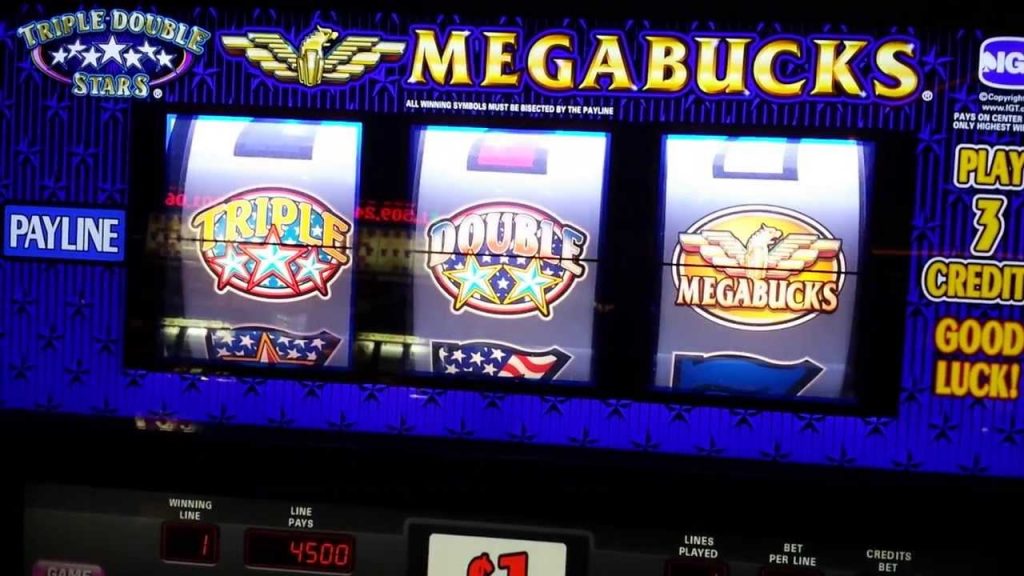
If you put 100 symbols on five reels, then you’ve got 10 billion different combinations to choose from.
Simplified slots odds
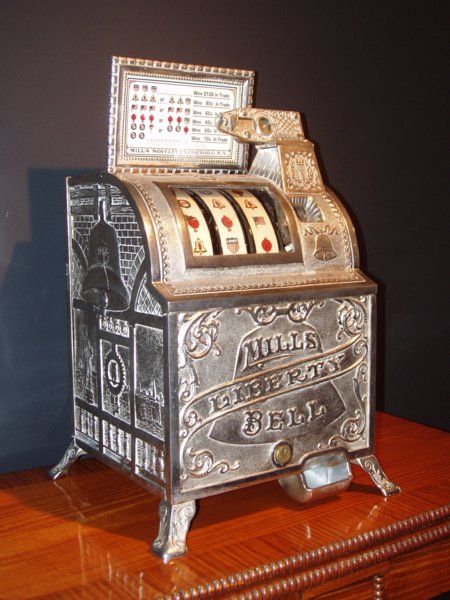
Here’s an incredibly slimmed-down example of how slots work. It’s based on the old Liberty Bell slot, created by Charles Fey in 1895.
The original mechanical slot had very few symbols, and thus not much possibility for long odds or complicated mechanisms. But we’ve given it a classic fruit machine vibe.
Our example is a three-reel slot with one payline. Each reel has ten symbols on: one Cherry, two Banana symbols, three Grape symbols, and four Lemons. Each coin is worth £1. Symbols are read left to right (not that it matters in a three-symbol win).
- 3 Cherries is the top-paying combination. It has one possible way to turn up. It pays out £200.
- 3 Bananas is the second rarest. There are eight possible ways to find it. It pays out £27.
- 3 Grapes is the third rarest. You’ve got 27 combinations for it. It pays out £9.
- 4 Lemons is the lowest paying combo. There’s 64 chances for it. It pays out £5.
- Unmatched symbols don’t pay out anything. There’s 900 possibilities for this.
So, let’s look at how many total coins each of these combinations pay out. You can work it out by multiplying the number of winning combinations by how much they pay out.
- Cherries: 1 combination x 200 reward = 200
- Bananas: 8 combinations x 27 reward = 216
- Grapes: 27 combinations x 9 reward = 243
- Lemons: 64 combinations x 5 reward = 320
In total, this gives us 979 coins as rewards. There are 1,000 possible combinations: if every combination comes up once, the machine will pay out 979 coins. So this mobile fruit machine has a RTP rate of a very reasonable 97.9 percent. The house only expects to keep 2.1 percent of all the money that’s put into it. Over 1,000 spins, it’ll only take £21 in winnings on average.
If the machine paid out in true odds, it would need to pay out another 21 coins on average. For the sake of convenience, we can put all of this into the jackpot – so if you win the top money, you’re actually being a little short-changed in that you should have won £221.
However, we could also re-arrange all of the payouts to make it fairer. A slot which will break even could look like this:
- 3 Cherries pays out £170
- 3 Bananas pays out £30
- 3 Grapes pays out £10
- 3 Lemons pays out £5
Compared to our current pay table, this pays more for the mid-frequency wins, the same amount for the most common, but significantly less for the jackpot.
Arranging paytables in different ways like this helps determine slot’s volatility, which we’ll come on to a bit later. Slots with the same RTP can have different levels of volatility – which tends to attract different profiles of players.
It’s also worth noting that the average casual player won’t get much out of this slot. If they put in £10, they are likely to come up with nine losing combinations (as 900 combinations are worthless) and one successful spin. Of these successful spins, the majority (64 out of 100) are 3 Lemons, which only pays out £5. And that’s assuming slots behave perfectly randomly – which, of course, isn’t the case. Many players could probably lose their money to this slot, while a few people consistently pull good payouts. Of course, that’s just how randomness works – and it’s all part of the fun.
Modern slot
So now we’ve got our heads around how basic slots work, let’s have a think about something more complicated: video slots. The physical reel no longer exists here.
– Random number generators use a much larger set of numbers, and there’s even more possibilities – exponentially so.
– You can use any number of reel symbols, and pay out on matches of different lengths if you want to.
– More paylines mean that more calculations have to be made.
– Bonus games are also a thing. These usually give bigger rewards, so you have to balance their impact with the payouts you’re offering.
More frequent payouts result in smaller sums of money.
Examples and explanations
Let’s take a theoretical slot which has five reels. There are eight different symbols which can win you payouts, plus two different kinds of symbol that can launch bonus events (which are probably a scatter symbol, and a bonus free spins symbol).
All of these different symbols need to have a random probability of coming up. They also require payout values at the match-three, match-four and match-five levels. Put all these factors together, and suddenly the maths gets a lot more complicated than just simple multiplications.

One of the biggest complications is multiple paylines. The maths we did in our sample slot only takes one payline into account. If you have 30 paylines, then the winning jackpot combination is suddenly 30 times more likely to show up – and you need to account for every combination on every single paylines.
Bonus events can also add extra layers of complexity. Regular play stops in these, and you get some other kind of event – a pick ‘em bonus, a random spin of a wheel, a number of free spins, or some kind of minigame. These bonus events have to be part of calculations too.
Make them too generous, and the casino loses money – but if they’re pointless, players could become disheartened and stop paying in any money at all. It’s a very fine balancing act.
Slots odds Internal intricacies
There’s a lot hidden behind the glamorous shell of the modern-day slot machine. We don’t get to see any of the maths that goes into it. Most players may not even have a formal understanding of how slot machines like our simple example above works: it’ll be more like a gut instinct. You know common combinations are worth less than rare ones.
Generally, slots odds we’re working with aren’t the true one. We also don’t get to see the way the slots odds are worked out, or anything of that nature. Nor do we know how much slots pay out, either – we can usually find RTP listed online and when playing mobile phone slots games, but it can be absent or hard to find in land-based casinos.
Land-based casinos often think of payback percentages as proprietary and so won’t reveal them to punters. Even the same game on two different machines could (in theory) have different payback percentages – we can’t be certain they’re the same, as minor modifications to the code could change the payout rate quite drastically. You could make several versions of the game available to casino operators, giving each type a different payback percentage or even different levels of volatility.
However, online websites will let you know what you can expect to get back. This is due to transparency – and gamers being more likely to take a chance on machines with high RTPs. So LadyLucks includes payout percentages on all of our game pages.
On the other hand, there are clues that can help flesh out what we don’t know. Look closely and you’ll discover some hints that could help pave the way. Pay tables can help us work out if the machine has high or low volatility. And reading all the information tells us what kind of bonuses are on offer – whether they’re progressive jackpots, free spins, scatter pays, wilds that double payout values, or more.
If you’re looking at a wide-area progressive machine, check out its top prize. The bigger it is, the more volatile the slot. This means wins are likely to be few and far between – but the ones that do clock out will give you huge sums of money. On the other hand, machines with smaller top prizes are often less volatile and pay out little but often.
A free spins bonus game is also more volatile than a pick ‘em bonus. This is because free spins are a matter of chance – you could win big, or go home with nothing. But pick ‘em bonuses guarantee a prize behind the object, even if there’s a set range of how big or small it may be.
Slot volatility
We’ve talked a lot about slot volatility in passing, so you probably have a fairly good idea of it by now. In short, it’s how the slot divides up the money it’s giving out. An RTP rate of 95 percent means that the slot only aims to keep £5 of every £100 paid into it. But slots with the same RTP can vary wildly in how it hands that out.
If your slot churns out a steady stream of small wins, it’s low volatility. These are the games that you can keep playing for hours without losing your whole bankroll, as you tend to make it back through small wins. You rarely get big payouts, but there’s likely to be lots going on to keep casual gamers interested. Bonuses could be commonplace, but not very lucrative.
That 95 percent RTP is organised as giving you small, frequent wins – the equivalent of winning £5 for lining up three lemons in our sample slot up the page.
In contrast, high volatility slots are a different kind of beast. They will eat up your bankroll, as you’re unlikely to win big. But the fact that the possibility is there – that you could emerge rich – is what keeps you coming back for more. In this case, the 95 percent RTP is balanced by the huge jackpot being very, very hard to come by. The bigger the jackpot, the harder it is to land it.
Plenty of contemporary slots available to play by phone are mixed volatility. This means there’s big wins on offer – often for lining up five wild symbols, or triggering a jackpot when you’ve got a multiplier in effect – but there’s also plenty of smaller prizes. Mixed volatility aims to intrigue hardcore gamers with the allure of big prizes, but also sufficiently entertain casual players too. The kind of game you prefer depends on your favourite gameplay style.
Programmable randomness

Let’s think back to a previous point. Games designers can make the same game available in a variety of different payback percentages. This lets the operator decide what niche they want that game to fill, and what percentage works best for it. Alternatively, a land-based casino could decide to use several different versions of the same slot and provide an element of randomness to its players. Mobile and online slots in the UK don’t succumb to this, but it’s still common in physical casinos.
This raises a lot of questions though: how can a game be both programmed and random? Isn’t that a contradiction?
In short: no.
Slots are programmed, which allows the designers to set the l – slots odds.
If you want to change the payout percentages, there’s some fairly easy ways to do that. The easiest way to do this is change the balance of symbols, so that low-paying ones come up more often than high-paying ones. But let’s take a step back, and return to one of our favourite table games: roulette.
We mentioned above that roulette pays out at 35-1, so let’s dig into that a bit deeper:
- An American roulette wheel has 38 numbers: 00, 0, and 1 to 36.
- The odds of any number coming up are 37-1.
- But the payout on offer is 35-1.
- Any bets made on a spin which lands on 0 or 00 are kept by the house – so there’s a two-unit discrepancy between what the punter gets and what the casino is really playing with.
- You can easily work out the house edge by dividing 2 (what the casino keeps) by 38 (the number of possible outcomes). You multiply the result by 100 to get the percentage value. That gives a house edge of 0.0526, or 5.26 percent.
American roulette is therefore programmed to have an RTP of 94.74 percent. The results are random, and might vary a little or a lot over its lifespan. The same number could appear loads of times in a row. But we all know roulette wheels aren’t rigged – it’s just the way they work out.
We can already see one difference in programming even within roulette. American roulette has a higher house edge than European roulette, because there’s an extra pocket (the 00) which causes you to lose. Playing European roulette cuts that edge to only 2.7 percent – by removing a symbol.
Now let’s imagine slot machine reels are like roulette wheels. We line up three roulette wheels, but each one has 100 possible stops. And we’re only paying out for the number 7 – so we want the chance of all three wheels stopping on 7.
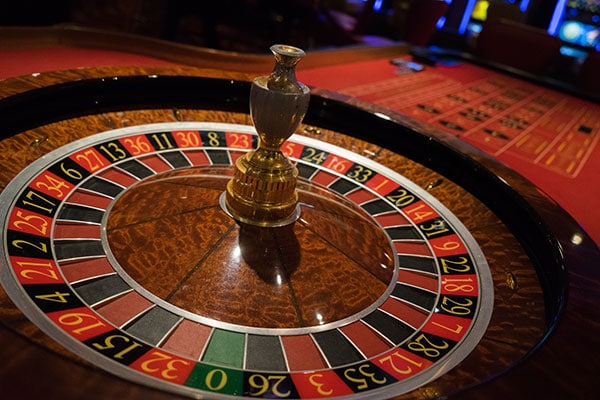
There’s 100 x 100 x 100 possible combinations here, which is 1 million. So the chance of landing 7 on all three is one in a million.
Slots are just a virtual version of this. Instead of spinning a wheel to find a number or choose a symbol, you’re generating a random number which corresponds to a specific point on the reels. It’s just a digital ball choosing a number rather than a physical one.
However, randomness isn’t the same as equality. Just because a machine is random doesn’t mean that it’ll give you each one of its ten symbols one-tenth of the time. In reality, the slot will be programmed so high value symbols come up much less frequently. On three-reel slots, there’s going to be plenty of spins that don’t win money – and on bigger lots with more paylines, you’ll run into small victories (that are less than the size of your total bet) more often than you’ll hit the big one.
Randomness is also behind streaks – that phenomenon where machines become ‘hot’ or ‘cold’. Sometimes you’ll get long streaks of victory, and other time there’s a drought where you don’t win anything. When you play a machine for 20 or 30 games, you’re getting an incredibly small snapshot into its overall lifespan. It’s going to have lots of unpredictability in it – which means there will be times when it hits winning combinations very often, and other times when nothing comes from it at all.
Even pick ‘em bonuses are randomised. If you’re offered three amounts – £10, £20, and £30 – then you have a one-in-three chance of picking each one. The average, of lots of people doing these picks over lots of spins, will be that this bonus averages a £20 payout. This average is built into payback percentage, and the random results is based on slots odds which themselves are part of the expected return to player. Everything in slots is random – but everything can also be quantified. Maths drives it all.
Beatable slot machines
Randomness is the order of the day in slots. Everything is carefully laid out so that you can’t mess with it – it’s all chance. Therefore, strategy can’t help you out at all. But there have been some cases where people have found ways around the house edge. Usually, these are discovered and fixed very quickly, or else word will spread. However, some games machines have a skill-based element.
Pachislot machines in Japan, for instance, have an element of skill in them. The reels must stop within a certain time of you pressing the stop button, so it’s possible for careful timing to help your result.
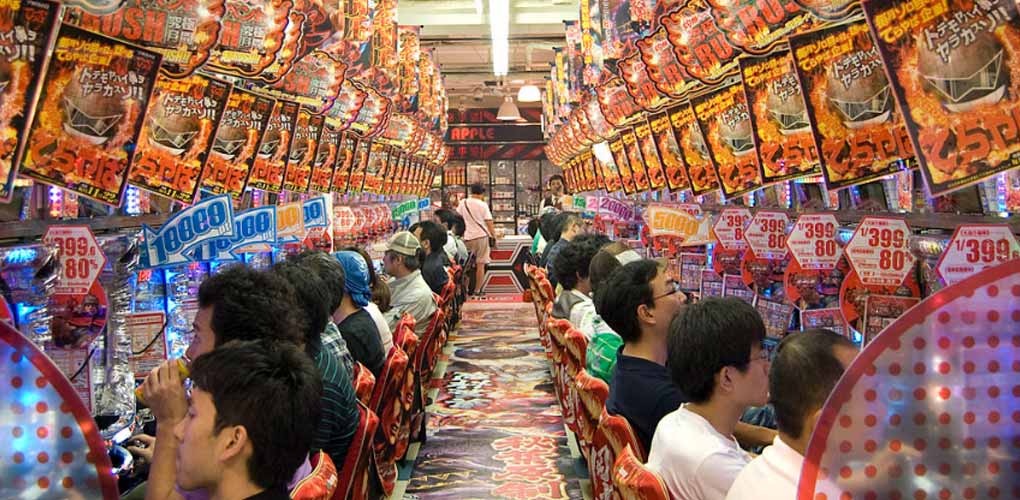
This is because skill-based gaming is legal in Japan, while random chance is strictly illegal (at least, for the moment). And some people have worked out that video poker – if played skilfully, with the right set of bonuses and circumstances – can even have a slight edge in the players’ favour. But this wasn’t always the case.
Racing 7s Vision series
The mid-90s had a lot of slot innovations. One of the crazes of that time was banked bonuses. Games would collect slots or symbols on the video screen, until you triggered a bonus award. Savvy players started seeking out games in casinos which were close to the trigger point, and played the final few games to ensure they reached the tipping point and landed the bonus for themselves.
Racing 7s slot was one of these games. It was part of the Vision Series which had an LCD panel in the upper box. There were red, white and blue 7s on a track – and each time one of these turned up in your payline, that colour 7 would move closer to the finishing line. Players looking for an easy game would seek out machines where the 7s were close to the finish line – because crossing it gave you a bonus.
Jackpot hunting
Some players seek out progressive jackpots with big rewards. These players have their own sense of logic. A progressive machine might start its total at £10,000 and, on average, pay out at around £20,000. If you only play these machines once the jackpot is over the £20,000 mark, the house edge could change. The bigger the jackpot, the smaller the house edge is – but it may not cover itself exactly. This strategy is much more successful with video poker, where the house edge is much smaller and thus easier to overcome.
However, there are still problems to this:
- Just because you know the average size of the jackpot doesn’t mean you know what the break-even point is. If a jackpot has to get up to £30,000 before it breaks even, then playing at the £20,000 point still gives the house an edge.
- Waiting for the jackpot to increase in size doesn’t change your chance of winning the jackpot. It just means that, if you do win it, you’ll receive more.
- You are still statistically unlikely to hit the jackpot, no matter if you’re beating house edge or not.
Skill-based bonuses
Casinos don’t want to take a chance on too much skill-based gaming, as it would be bad if their house edge started slipping. Poker is an exception, thanks to its popularity and wide range of skill levels. The buy-ins still ensure that you get lots of money going back to the casino, even if winners take large chunks.
IGT’s Centipede gets around this by limiting the skill to a small section. In the bonus game, you play a version of Atari’s Centipede arcade game. You move around the screen and fire up at the centipede (and the mushrooms on screen) and receive prizes based on how well you do.

There is some skill involved here, so games designers can’t just make another calculation and leave it up to random luck. It accepts a small unknown in exchange for an exciting and novel premise.
The only real skill you need to play slots is knowing when to call it quits. Losses are part and parcel of the game. If you burn through your assigned bankroll there’s a skill to being able to know that enough is enough. Once you’ve mastered that art – and you understand that slots are just a form of entertainment – then it’s easier to accept losing streaks as just one of those things.
There’s no strategy to playing slot machines – and that’s a big part of the fun.
You don’t need to brush up on reading facial expressions, knowing the perfect plays, or memorising different charts.
You just pick up and play. The complicated maths behind slot machines ensures they are always truly random – and so, win or lose, it’s all up to chance.
Remember that it’s more than about just the jackpots. Slots are fun – and finding entertainment value will keep you appreciating these fantastic machines.





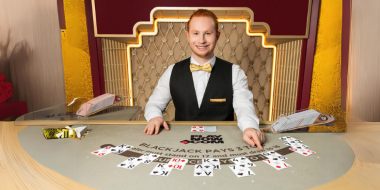


[…] You’ve also got the deck stacked against you: with the numbers, the casino always wins. So this section is dedicated to helping you understand the maths behind slot machines: how house edge works, what slot volatility is, and how you can have something that’s programmed […]